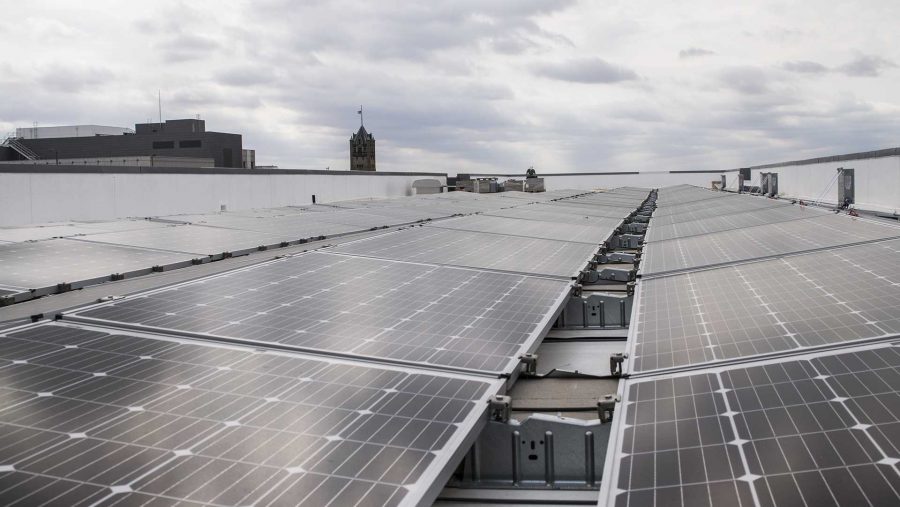A bill passed last month in the Iowa Senate would alter the state’s utility laws, with a direct effect on energy-efficiency initiatives.
University of Iowa students and faculty closely involved with renewable energy are wary of potential effects. The UI American Society of Mechanical Engineers Solar Car Team actively advocates against the bill.
“It’s a very big piece of legislation. We don’t have problems with most of it. The part that we’re concerned about is the caps on the energy-efficiency programs,” business chair of the Solar Car Team Francisco Fidalgo said. “We think that it’s not the right direction we should be moving toward.”
Currently, a portion of Iowans’ utility bills benefit energy-efficiency programs. The proposed legislation, however, will set limits on the percentage of a customer’s electric or gas bill going toward the effort.
Fidalgo and his team are dedicated to building and racing a solar-powered car, and they are concerned with the subsequent effect on solar energy.
He said they are currently able to get a discount on solar panels as a result of tax incentives from the government.
“The money that was going toward that incentive will dry up so we’ll no longer be able to get it,” he said.
RELATED: ISU’s old solar car hits road to help UI’s ASME team
The bill would also give customers the choice to completely opt out of paying the tax toward sustainable initiatives. Currently, the tax is not shown at all on utility bills. However that is subject to change if the bill is passed in the House.
Fidalgo said the solar-power team is opposed to these changes because it could result in a decrease in funding and doesn’t display the benefits of the tax to the consumer.
UI Associate Professor Charles Stanier shared a letter written to Rep. Ted Gassman with The Daily Iowan. He laid out how energy-efficiency programs in Iowa have benefited Iowans financially through energy conservation.
“The benefit is widespread because the savings show up in the form of lower prices throughout the economy — local stores and restaurants, offices, school districts with lower energy bills, government buildings with lower energy bills, etc.” he said. “So while the average Iowan puts $60 a year into the program, the money is invested in energy efficiency projects with rapid payback [on average], and they see much more than $60 per year of value throughout Iowa’s economy.”
RELATED: Solar energy lights up on campus
Supporters of the bill cite the benefits of transparency in billing, lower utility bills because of less tax, and other possible financial benefits.
“[Senate File 2311] puts us at opposition with some of our sponsors who would benefit from it financially,” UI student and solar-car team member Eben Shelton said. “But as Francisco said, we believe this is not the way toward a brighter future for Iowa.”
Senate File 2311 was approved 27-23 by the Senate on March 6. It’s still being amended, with the most recent amendments added April 4. Next, it will await approval in the House of Representatives.



